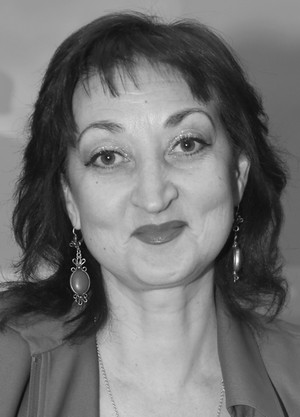Students' self-learning system design in professional teachers' education
Фотографии:
ˑ:
Teoriya i praktika fizicheskoy kultury №11 2016, pp. 6-8
UDC 796.071.4
Professor, Dr.Hab. E.V. Bystritskaya1
Professor, Dr.Hab. E.Y. Ilaltdinova1
Associate professor, PhD R.U. Arifulina1
Associate professor, PhD S.I. Aksenov1
Associate professor, PhD I.V. Lebedeva1
1Kozma Minin Nizhny Novgorod State University (Minin University), Nizhny Novgorod
e-mail: oldlady@mail.ru
The article considers the physical education students’ self-learning system design at pedagogical departments to improve the quality of their professional pedagogical background. A professional performance modelling technology applicable in the students’ self-learning process is considered as a formation basis for the necessary professional competences and career of the future physical education teacher and coach.
The article considers the drawbacks for the existing students’ self-learning system that must and can be corrected by the academic education and training modelling technology including the self-learning process being designed on a modular basis.
The students’ self-learning system will be designed to include a set of the following subsystems: thesaurus meaning the conceptual and categorical framework of the subject training process; canon that includes the theoretical paradigms and ideas forming a general concept of the subject; pantheon that means the histories of the key researchers who made their contributions to the science; annals meaning the accounts of the pivotal events in history of the subject research discipline; programmatic control operators required for control of the whole integrity of the subject discipline; and navigator that means the guide to adjacent areas of the subject field.
The authors have developed and tested an athropic interactive modelling technology to form educational environment of physical education departments based on a professional educational interaction of the academic staff and students within the frame of intra-disciplinary practice-centred education modules that are offered as a basis for the students’ self-learning system (SSLS) design.
These intra-disciplinary (extensive-content) educational modules may include the following: Problem Module; Sense Module; Accomplishment Module; Teaching Mastery Module; Professional Motivation Module etc.
Keywords: physical education teacher, professional teachers’ education system reform, students’ self-learning system, professional performance modelling technology, job-specific actions.
References
- Bystritskaya E.V., Aksenov S.I., Arifulina R.U. et al. Nauchno-tekhnologicheskie podkhody v pedagogicheskom obrazovanii [Scientific and technological approaches in teacher education].Vestnik Mininskogo universiteta, 2014, no. 1 (5), 12 p.
- Dmitriev S.V., Bystritskaya E.V. Antropno-deyatelnostnaya paradigma v pedagogike (Polemicheskie zametki) [Anthropic-Activity Paradigm In Pedagogics (Polemic Remarks)]. Teoriya i praktika fiz. kultury, 2013, no. 1, pp. 96-101.
- Dmitriev S.V., Bystritskaya E.V., Neverkovich S.D. Soznanie, myshlenie i deyatelnost v antropnykh tehnologiyakh obrazovaniya [Consciousness, thinking and activity in anthropic education technologies]. Teoriya i praktika fiz. kultury, 2013, no. 1, p. 96.
- Dmitriev S.V., Neverkovich S.D., Bystritskaya E.V., Voronin D.I. Transversalnye programmy dlya sistemy obrazovaniya magistrantov v sfere fizicheskoy kul'tury. Ch. 1: docendo discimus (obuchaya drugkh, my uchimsya sami) (Transversal programs for undergraduates education system in physical education sector. Part 1: docendo discimus (teaching others, we learn ourselves). Sportivny psikholog, 2014, no. 3, pp. 15-19.
- Dmitriev S.V., Neverkovich S.D., Bystritskaya E.V. Obrazovatelnye tekhnologii - ot logiki vzaimodeystviya k logike sotvorchestva [Educational Technologies - from logic of cooperation to logic of co-creation]. Sportivny psikholog, 2011, no. 2 (23), pp. 72-77.
- Khutorskoy A.V. Doktrina obrazovaniya cheloveka v Rossiyskoy Federatsii [The doctrine of human education in the Russian Federation]. Moscow: Eidos; Institute for Human Education publ., 2015, 24 p.
Received 13.07.2016 г.



 Журнал "THEORY AND PRACTICE
Журнал "THEORY AND PRACTICE